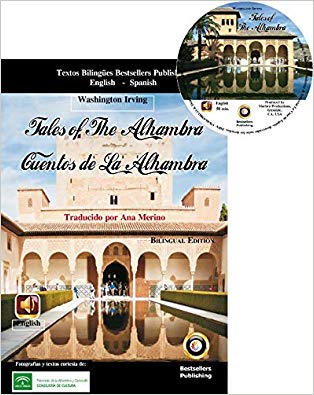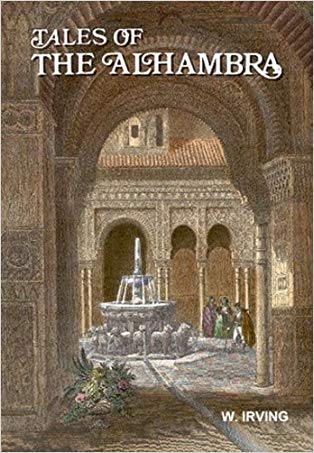Ir al contenido
Resultados de la búsqueda para: Washington Irving


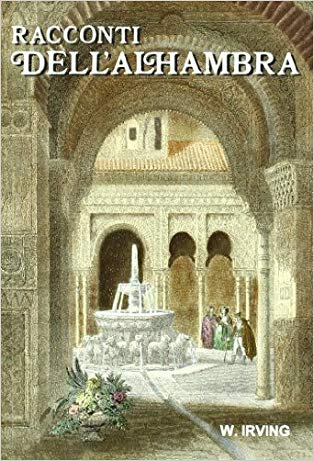



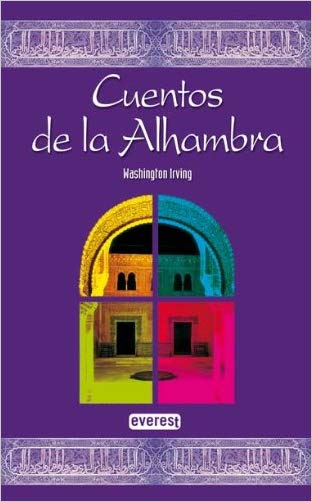 Washington Irving (1783-1859), considerado "patriarca de la literatura americana" y "el mejor escritor de habla inglesa de su tiempo", narra en libro las fascinantes leyendas populares relacionadas con la Alhambra, recogidas en su visita a España en 1829. Con 32 páginas de láminas a todo color de la Alhambra y grabados de la época.
Washington Irving (1783-1859), considerado "patriarca de la literatura americana" y "el mejor escritor de habla inglesa de su tiempo", narra en libro las fascinantes leyendas populares relacionadas con la Alhambra, recogidas en su visita a España en 1829. Con 32 páginas de láminas a todo color de la Alhambra y grabados de la época.
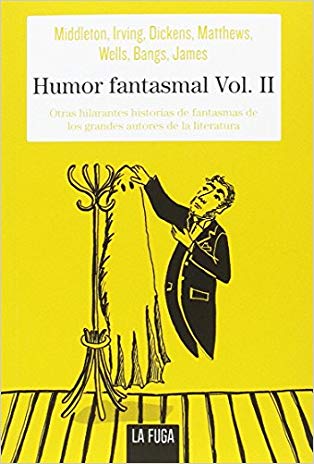

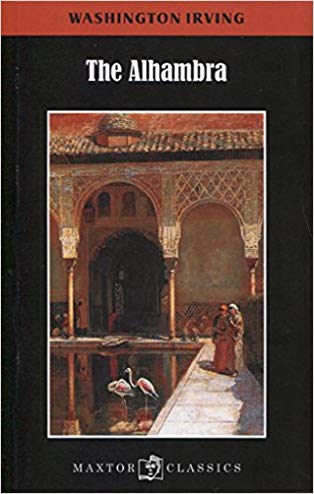 In the spring of 1829, the author of this work, whom curiosity had brought into Spain, made a rambling expedition from Seville to Granada in company with a friend, a member of the Russian Embassy at Madrid. Accident had thrown us together from distant regions of the globe, and a similarity of taste led us to wander together among the romantic mountains of Andalusia... Tales of the Alhambra is a collection of essays, verbal sketches, and stories by Washington Irving. Shortly after completing a biography of Christopher Columbus in 1828, Washington Irving traveled from Madrid, where he had been staying, to Granada, Spain. At first sight, he described it as "a most picturesque and beautiful city, situated in one of the loveliest landscapes that I have ever seen." Irving was preparing a book called A Chronicle of the Conquest of Granada, a history of the years 14781492, and was continuing his research on the topic. He immediately asked the then-governor of the historic Alhambra Palace as well as the archbishop of Granada for access to the palace, which was granted because of Irving's celebrity status.
In the spring of 1829, the author of this work, whom curiosity had brought into Spain, made a rambling expedition from Seville to Granada in company with a friend, a member of the Russian Embassy at Madrid. Accident had thrown us together from distant regions of the globe, and a similarity of taste led us to wander together among the romantic mountains of Andalusia... Tales of the Alhambra is a collection of essays, verbal sketches, and stories by Washington Irving. Shortly after completing a biography of Christopher Columbus in 1828, Washington Irving traveled from Madrid, where he had been staying, to Granada, Spain. At first sight, he described it as "a most picturesque and beautiful city, situated in one of the loveliest landscapes that I have ever seen." Irving was preparing a book called A Chronicle of the Conquest of Granada, a history of the years 14781492, and was continuing his research on the topic. He immediately asked the then-governor of the historic Alhambra Palace as well as the archbishop of Granada for access to the palace, which was granted because of Irving's celebrity status.
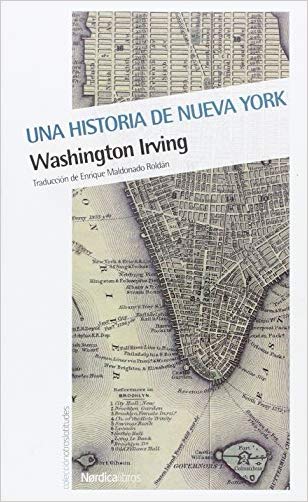 Publicada en 1809, esta novela satírica fue escrita, supuestamente, por un viejo cascarrabias llamado Diedrich Knickerbocker(heterónimo del autor). El mismo Irving participó en una especie de campaña de marketing viral del libro, escribiendo anuncios en los periódicos de Nueva York en los que se buscaba al tal Knickerbocker.Contado desde el punto de vista de Knickerbocker, este libro es una crónica que abarca cincuenta años, comenzando en la década de 1600, de la historia de la ciudad Nueva York bajo el gobierno holandés. Novela hilarante y tremendamente entretenida.Tal fue su influecia que los neoyorkinos pasaron a conocerse como " Knickerbocker". No hay nada que se le parezca en la literatura americana temprana y Dickens, entre otros, tuvo un especial interés por esta obra.
Publicada en 1809, esta novela satírica fue escrita, supuestamente, por un viejo cascarrabias llamado Diedrich Knickerbocker(heterónimo del autor). El mismo Irving participó en una especie de campaña de marketing viral del libro, escribiendo anuncios en los periódicos de Nueva York en los que se buscaba al tal Knickerbocker.Contado desde el punto de vista de Knickerbocker, este libro es una crónica que abarca cincuenta años, comenzando en la década de 1600, de la historia de la ciudad Nueva York bajo el gobierno holandés. Novela hilarante y tremendamente entretenida.Tal fue su influecia que los neoyorkinos pasaron a conocerse como " Knickerbocker". No hay nada que se le parezca en la literatura americana temprana y Dickens, entre otros, tuvo un especial interés por esta obra.



 Washington Irving (1783-1859), considerado "patriarca de la literatura americana" y "el mejor escritor de habla inglesa de su tiempo", narra en libro las fascinantes leyendas populares relacionadas con la Alhambra, recogidas en su visita a España en 1829. Con 32 páginas de láminas a todo color de la Alhambra y grabados de la época.
Washington Irving (1783-1859), considerado "patriarca de la literatura americana" y "el mejor escritor de habla inglesa de su tiempo", narra en libro las fascinantes leyendas populares relacionadas con la Alhambra, recogidas en su visita a España en 1829. Con 32 páginas de láminas a todo color de la Alhambra y grabados de la época.
 In the spring of 1829, the author of this work, whom curiosity had brought into Spain, made a rambling expedition from Seville to Granada in company with a friend, a member of the Russian Embassy at Madrid. Accident had thrown us together from distant regions of the globe, and a similarity of taste led us to wander together among the romantic mountains of Andalusia... Tales of the Alhambra is a collection of essays, verbal sketches, and stories by Washington Irving. Shortly after completing a biography of Christopher Columbus in 1828, Washington Irving traveled from Madrid, where he had been staying, to Granada, Spain. At first sight, he described it as "a most picturesque and beautiful city, situated in one of the loveliest landscapes that I have ever seen." Irving was preparing a book called A Chronicle of the Conquest of Granada, a history of the years 14781492, and was continuing his research on the topic. He immediately asked the then-governor of the historic Alhambra Palace as well as the archbishop of Granada for access to the palace, which was granted because of Irving's celebrity status.
In the spring of 1829, the author of this work, whom curiosity had brought into Spain, made a rambling expedition from Seville to Granada in company with a friend, a member of the Russian Embassy at Madrid. Accident had thrown us together from distant regions of the globe, and a similarity of taste led us to wander together among the romantic mountains of Andalusia... Tales of the Alhambra is a collection of essays, verbal sketches, and stories by Washington Irving. Shortly after completing a biography of Christopher Columbus in 1828, Washington Irving traveled from Madrid, where he had been staying, to Granada, Spain. At first sight, he described it as "a most picturesque and beautiful city, situated in one of the loveliest landscapes that I have ever seen." Irving was preparing a book called A Chronicle of the Conquest of Granada, a history of the years 14781492, and was continuing his research on the topic. He immediately asked the then-governor of the historic Alhambra Palace as well as the archbishop of Granada for access to the palace, which was granted because of Irving's celebrity status. Publicada en 1809, esta novela satírica fue escrita, supuestamente, por un viejo cascarrabias llamado Diedrich Knickerbocker(heterónimo del autor). El mismo Irving participó en una especie de campaña de marketing viral del libro, escribiendo anuncios en los periódicos de Nueva York en los que se buscaba al tal Knickerbocker.Contado desde el punto de vista de Knickerbocker, este libro es una crónica que abarca cincuenta años, comenzando en la década de 1600, de la historia de la ciudad Nueva York bajo el gobierno holandés. Novela hilarante y tremendamente entretenida.Tal fue su influecia que los neoyorkinos pasaron a conocerse como " Knickerbocker". No hay nada que se le parezca en la literatura americana temprana y Dickens, entre otros, tuvo un especial interés por esta obra.
Publicada en 1809, esta novela satírica fue escrita, supuestamente, por un viejo cascarrabias llamado Diedrich Knickerbocker(heterónimo del autor). El mismo Irving participó en una especie de campaña de marketing viral del libro, escribiendo anuncios en los periódicos de Nueva York en los que se buscaba al tal Knickerbocker.Contado desde el punto de vista de Knickerbocker, este libro es una crónica que abarca cincuenta años, comenzando en la década de 1600, de la historia de la ciudad Nueva York bajo el gobierno holandés. Novela hilarante y tremendamente entretenida.Tal fue su influecia que los neoyorkinos pasaron a conocerse como " Knickerbocker". No hay nada que se le parezca en la literatura americana temprana y Dickens, entre otros, tuvo un especial interés por esta obra.
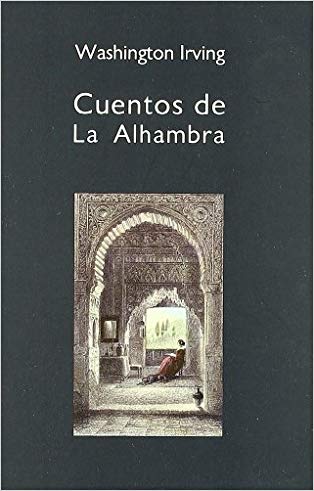
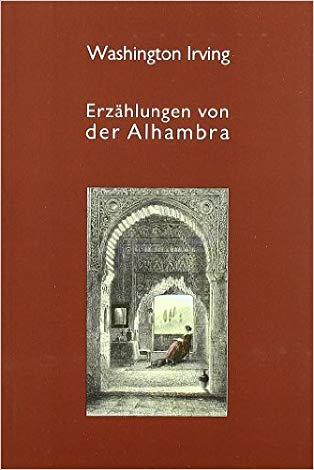
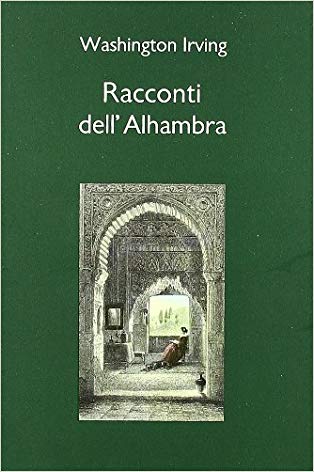
 Es imposible pensar en la Alhambra y el Generalife sin recordar a Irving, y hasta quienes no han leído los Cuentos de la Alhambra han oído hablar de ellos o han recibido, a través de otros conductos, sus efluvios: por osmosis o, como diría Rubén Darío, gr
Es imposible pensar en la Alhambra y el Generalife sin recordar a Irving, y hasta quienes no han leído los Cuentos de la Alhambra han oído hablar de ellos o han recibido, a través de otros conductos, sus efluvios: por osmosis o, como diría Rubén Darío, gr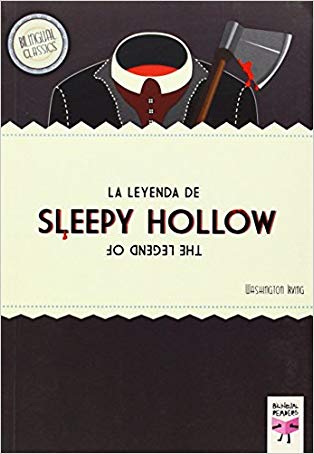 "La leyenda de Sleepy Hollow / The Legend of Sleepy Hollow" transcurre en el Valle Dormido, lugar famoso por sus numerosas leyendas sobre fantasmas. El relato cuenta la historia del profesor Ichabod Crane -pretendiente de la bella Katrina Van Tassel y rival por su amor de BromBones-, quien de regreso a casa una noche es perseguido por un jinete sin cabeza. Al siguiente día solo aparecen el sombrero del profesor y los restos de una calabaza. La colección Bilingual Classics reúne la versión completa bilingüe de grandes clásicos de la literatura universal e incluye ejercicios al final del libro para reforzar el vocabulario y las estructuras aprendidas.
"La leyenda de Sleepy Hollow / The Legend of Sleepy Hollow" transcurre en el Valle Dormido, lugar famoso por sus numerosas leyendas sobre fantasmas. El relato cuenta la historia del profesor Ichabod Crane -pretendiente de la bella Katrina Van Tassel y rival por su amor de BromBones-, quien de regreso a casa una noche es perseguido por un jinete sin cabeza. Al siguiente día solo aparecen el sombrero del profesor y los restos de una calabaza. La colección Bilingual Classics reúne la versión completa bilingüe de grandes clásicos de la literatura universal e incluye ejercicios al final del libro para reforzar el vocabulario y las estructuras aprendidas.